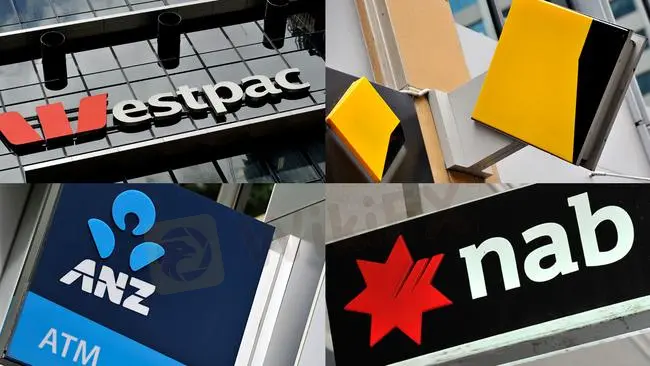简体中文
繁體中文
English
Pусский
日本語
ภาษาไทย
Tiếng Việt
Bahasa Indonesia
Español
हिन्दी
Filippiiniläinen
Français
Deutsch
Português
Türkçe
한국어
العربية
AU: Banking boss pledges cash rate as homeowners wait for next hike
Abstract:Australian households are being stretched to the limit by our cost of living crisis and rising interest rates – but the Reserve Bank has some small comfort for those doing it tough.
Click Here: After you read it, Daily Routine with WikiFX
The RBA is all but certain to raise the cash rate again when it meets next Tuesday, but governor Philip Lowe said it wouldn't be as large as many anticipated. He said an interest-rate increase of 0.75 percentage points is “off the table” this time.

In fact, he suggested the central bank will likely consider “graduated steps” in July, implying a 0.25 or 0.5 percentage point increase.
The RBA raised Australia's official cash rate to 0.35 percent from 0.1% in early May, a more severe increase than the 15 basis point jump most experts had projected.
In June, the board raised the official cash rate by 50 basis points to 0.85%, catching experts off guard with the “super-sized” rate hike.
Dr. Lowe's latest statements seem to have poured cold water on speculations the official cash rate might reach 4% in 2022, as the RBA would have to declare at least one 0.75 percent raise.
He admitted the RBA had a “narrow path” to curb inflation without creating a recession.
He warned that a change in the nation's “inflation psychology” would drive ever-rising salaries and prices, leading to higher interest rates.
Dr. Lowe said there is a narrow route to reducing inflation without hurting the economy.
Businesses feel secure raising prices, which encourages workers to demand salary raises.
“It's not formal pay indexation, but it's indexation of a kind because individuals with high inflation expect compensation, especially with a low unemployment rate,” Dr. Lowe said.
There's a shift in the country's inflation psychology, but it's not reflected in survey-based inflation forecasts.
“If people worry we can't create a credible road back, the shift in mentality could be pretty durable, and we know where that leads.”
It causes chronic inflation, and higher interest rates and a recession are needed to reduce it.
Dr. Lowe believes inflation will begin to ease in early 2023, but it will take “a couple of years” to reach the 2-3% target.
Disclaimer:
The views in this article only represent the author's personal views, and do not constitute investment advice on this platform. This platform does not guarantee the accuracy, completeness and timeliness of the information in the article, and will not be liable for any loss caused by the use of or reliance on the information in the article.
Read more

The Impact of Interest Rate Decisions on the Forex Market
Interest rate changes determine currency attractiveness, influencing capital flows and exchange rate trends. Understanding this mechanism helps investors navigate the forex market effectively.

How a Housewife Lost RM288,235 in a Facebook Investment Scam
A 47-year-old housewife in Malaysia recently fell victim to an online investment scam, losing a substantial sum of RM288,235 after engaging with a fraudulent scheme advertised on Facebook.

Interactive Brokers Launches Forecast Contracts in Canada for Market Predictions
Interactive Brokers introduces Forecast Contracts in Canada, enabling investors to trade on economic, political, and climate outcomes. Manage risk with ease.

Bank Negara Malaysia Flags 12 New Companies for Unauthorised Activity
Bank Negara Malaysia (BNM) has updated its Financial Consumer Alert List (FCA List) by adding 12 more entities, reinforcing its efforts to warn the public against unregulated financial schemes. Check if your broker made the list!
WikiFX Broker
Latest News
The Withdrawal Trap: How Scam Brokers Lure Victims into Paying More
FCA to Investors: Think Twice Before Trusting These Brokers
Trump\s tariffs: How could they affect the UK and your money
Trump gambles it all on global tariffs he\s wanted for decades
TradingView Brings Live Market Charts to Telegram Users with New Mini App
Trump tariffs: How will India navigate a world on the brink of a trade war?
Interactive Brokers Launches Forecast Contracts in Canada for Market Predictions
Authorities Alert: MAS Impersonation Scam Hits Singapore
IG Group Acquires Freetrade for £160M to Expand UK Investment Market
U.S. March ISM Manufacturing PMI Released
Currency Calculator


